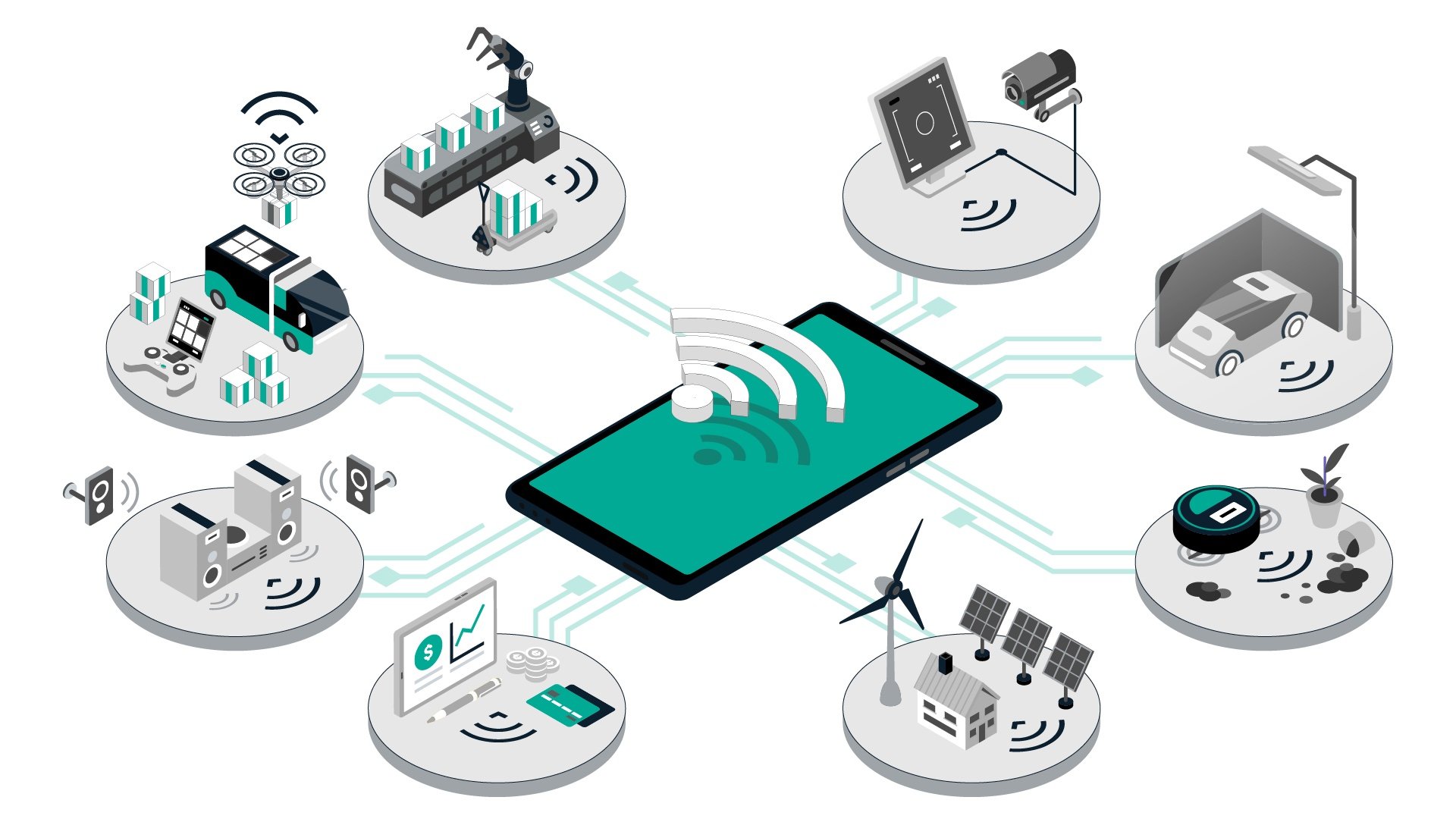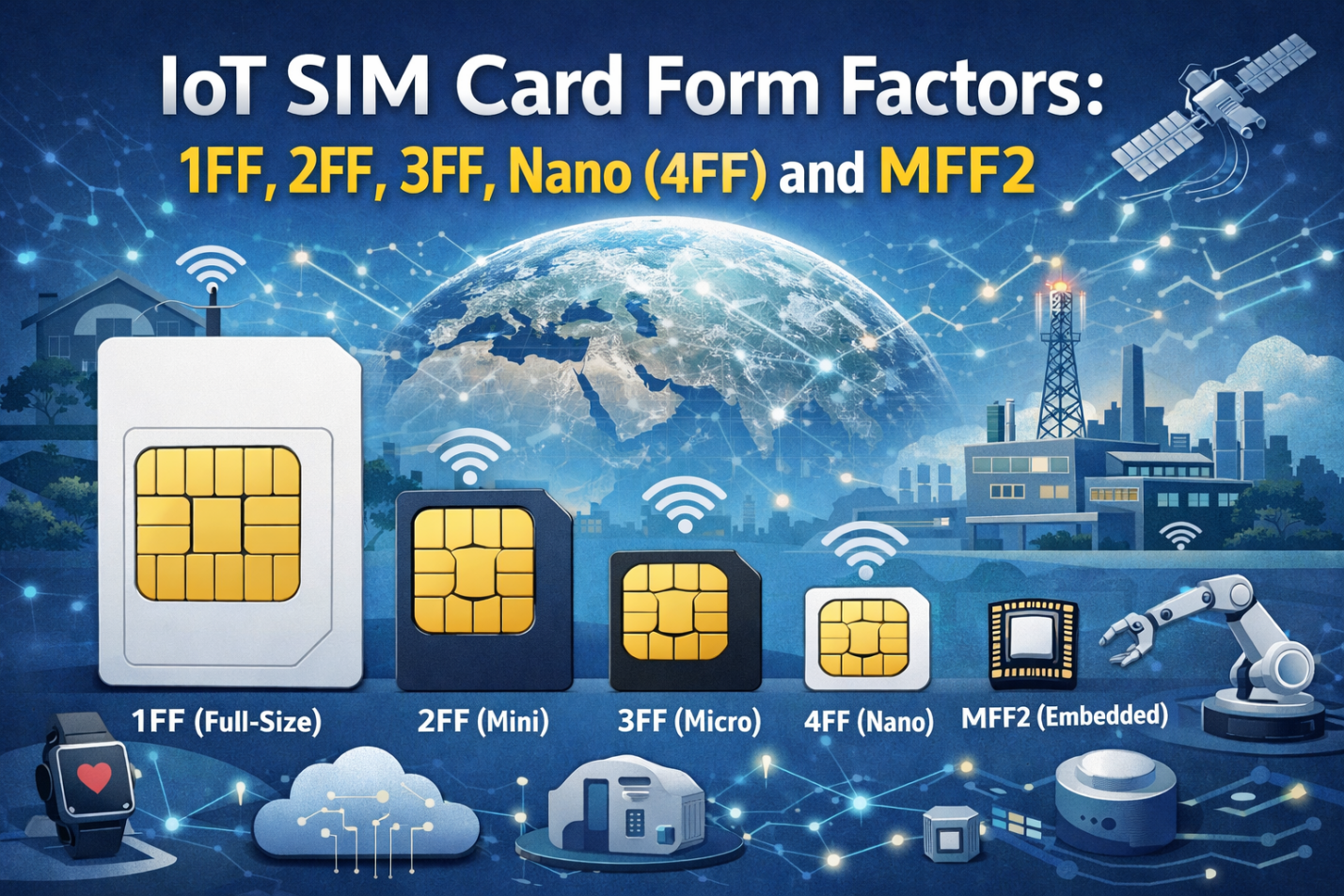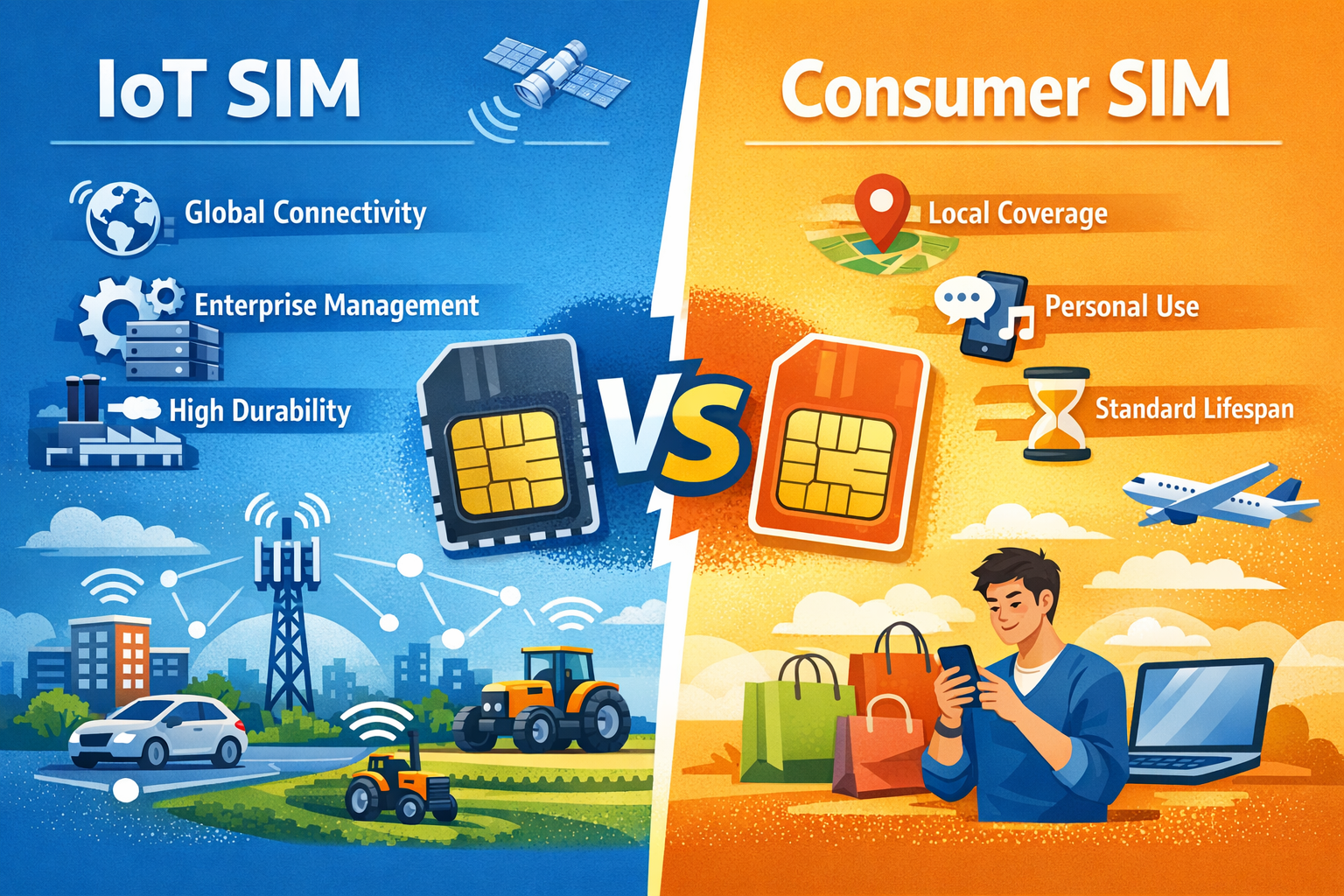1. Introduction: Why the Right IoT SIM Card Provider Matters
In the rapidly evolving Internet of Things (IoT) ecosystem, reliable connectivity is the foundation of every successful deployment. From GPS trackers and smart meters to connected vehicles and industrial sensors, every IoT device needs a stable, secure, and scalable data connection.
That’s where an IoT SIM Card Provider comes in. These providers offer specialized connectivity solutions that allow devices to communicate seamlessly across borders and networks. However, with dozens of options available, choosing the right provider can be a complex task for businesses.
This guide will walk you through everything you need to know about selecting the best IoT SIM Card Provider — from understanding key features to evaluating pricing, coverage, and long-term reliability.
2. What Is an IoT SIM Card Provider?
An IoT SIM Card Provider is a company that delivers SIM-based connectivity solutions for machine-to-machine (M2M) communication. Unlike traditional SIM cards used in smartphones, IoT SIM cards are built for devices that transmit small packets of data over long periods and across multiple networks.
Key Functions of an IoT SIM Provider
- Provides multi-network coverage for global or regional IoT deployments.
- Offers data management platforms for SIM activation, usage tracking, and billing.
- Supports LPWA networks such as LTE-M and NB-IoT for low-power devices.
- Ensures data security, encryption, and private APN support.
- Provides API integration for automated device management.
A good IoT SIM provider does more than sell connectivity—it becomes a long-term partner in your IoT success.
3. Why Businesses Need Specialized IoT Connectivity
If you’re running an enterprise IoT project—such as fleet tracking, remote monitoring, or smart energy systems—standard consumer SIM cards won’t meet your needs. IoT SIMs provide:
- Global Roaming & Multi-Operator Access
Your devices can stay connected even when crossing country borders or when one carrier’s signal fails. - Scalability
Manage hundreds or thousands of devices from one central platform. - Data Control & Insights
Real-time monitoring helps you understand consumption, avoid overuse, and reduce costs. - Device Longevity
IoT SIMs are designed for industrial-grade environments and long operational lifespans. - Security
Private networks, VPNs, and encryption protect data from unauthorized access.
4. Key Factors to Consider When Choosing an IoT SIM Card Provider
Selecting the right IoT SIM Card Provider involves evaluating several business and technical factors. Let’s explore the most critical ones.
4.1. Network Coverage & Reliability
Check whether the provider offers:
- Global or regional coverage (depending on your deployment)
- Multi-carrier roaming, ensuring devices stay online at all times
- Support for 2G, 3G, 4G, 5G, LTE-M, and NB-IoT
For global businesses, a provider with multi-operator access (like Vodafone, KORE, or Zongyi IoT) is ideal.
4.2. SIM Form Factors and eSIM Options
Different devices require different SIM types:
- Standard SIM (2FF, 3FF, 4FF)
- MFF2 (embedded) for industrial or rugged devices
- eSIM or iSIM for remote provisioning and flexibility
If your project involves long-term deployment or devices in hard-to-reach places, prioritize providers that offer eSIM support.
4.3. Connectivity Management Platform
A modern IoT SIM Card Provider should offer a cloud-based platform or dashboard where you can:
- Activate or suspend SIM cards
- Monitor real-time data usage
- Set alerts and limits
- Generate reports for analytics
- Access APIs for integration with your ERP or CRM systems
This level of visibility and control helps businesses scale efficiently while maintaining transparency.
4.4. Pricing Structure & Data Plans
IoT data usage can vary dramatically depending on your application. For instance:
- A GPS tracker may use only 10–50 MB/month
- A security camera may consume 1–5 GB/month
Look for flexible and transparent pricing options:
- Pay-as-you-go plans
- Tiered or pooled data models
- Fixed lifetime plans (like 1NCE’s 10-year plan)
Your provider should help you optimize costs rather than lock you into rigid contracts.
4.5. Security and Compliance
IoT security is paramount. Choose a provider that offers:
- Private APNs or VPN connections
- End-to-end encryption (SSL/TLS)
- GDPR and ISO 27001 compliance
- Fraud and misuse protection
A secure IoT network not only protects your devices but also ensures compliance with international standards.
4.6. Technical Support and Reliability
When thousands of devices depend on a connection, downtime is unacceptable. Look for:
- 24/7 technical support
- Dedicated account managers
- Uptime guarantees (SLA)
- Fast SIM replacement and logistics support
Strong after-sales service differentiates top-tier IoT SIM providers from low-cost alternatives.
5. Comparing Leading IoT SIM Card Providers (2025 Overview)
Here’s a quick comparison of the leading IoT SIM providers in 2025 based on global coverage, platform quality, and flexibility:
| Provider | Coverage | eSIM | Management Platform | Best For | Highlight |
|---|---|---|---|---|---|
| Vodafone IoT | 190+ countries | Yes | Yes | Global enterprises | Strong infrastructure |
| KORE Wireless | 400+ networks | Yes | Yes | Industrial IoT | Managed services |
| 1NCE | 150+ countries | No | Yes | Low-data devices | Fixed lifetime plan |
| Transatel (NTT) | Global | Yes | Yes | Automotive | Multi-profile eSIM |
| Zongyi IoT | Global | Yes | Yes | B2B buyers | High-quality, low-cost |
| Eseye | 200+ networks | Yes | Yes | Logistics | Smart network switching |
| Twilio IoT | 180+ countries | Yes | Yes | Developers | API integration |
6. Questions to Ask Before Choosing a Provider
Before signing any agreement, ask potential IoT SIM Card Providers these critical questions:
- What networks and technologies (2G/4G/5G/NB-IoT) do you support?
- Do you offer global roaming and multi-carrier access?
- Can I manage SIMs and data usage through an online dashboard?
- What security measures are in place for data protection?
- What are your pricing models (monthly, pooled, lifetime)?
- Do you provide API access for automation?
- How quickly can you deliver large-scale SIM orders?
- What’s your average response time for support tickets?
Having clear answers helps you avoid hidden costs and unreliable service later.
7. Common Mistakes Businesses Make When Selecting an IoT SIM Provider
Even experienced companies can make costly mistakes. Avoid these pitfalls:
- Focusing only on price without evaluating coverage or support.
- Choosing consumer SIMs instead of enterprise IoT solutions.
- Ignoring management capabilities — manual tracking quickly becomes unmanageable at scale.
- Underestimating data needs leading to throttling or extra charges.
- Skipping security verification, exposing devices to cyber risks.
Always balance cost, quality, and reliability when choosing your provider.
8. The Rise of eSIM and iSIM in IoT Connectivity
One of the biggest trends in 2025 is the adoption of eSIM (embedded SIM) and iSIM (integrated SIM) technology.
These next-generation SIMs allow:
- Remote provisioning (change networks over-the-air)
- Simpler logistics (no physical SIM swapping)
- Lower device size and power consumption
Forward-thinking IoT SIM Card Providers like Transatel, Vodafone, and Zongyi IoT already support eSIM-based deployments — making IoT connectivity more flexible and future-proof.
9. Regional vs. Global IoT SIM Card Providers
Depending on your business model, you can choose between regional or global IoT providers:
| Type | Advantages | Limitations |
|---|---|---|
| Regional Providers | Lower costs, localized support | Limited roaming, less scalability |
| Global Providers | Worldwide coverage, one platform | Higher initial costs |
For most B2B use cases (especially logistics, manufacturing, and cross-border IoT), global IoT SIM providers offer better scalability and simplicity.
10. Case Example: Zongyi IoT — Global SIM Solutions for B2B Businesses
Zongyi IoT is a leading IoT SIM Card Provider specializing in cost-effective, high-quality connectivity solutions for GPS trackers, smart cameras, and industrial meters.
- Coverage: 190+ countries via multi-carrier roaming
- Network Partners: China Mobile, Vodafone, Orange
- Features: Global SIM, private network support, API management
- Use Cases: Logistics, security, energy, and asset tracking
Zongyi IoT helps global B2B buyers simplify connectivity deployment, offering enterprise-grade performance at competitive prices.
CTA:
👉 If you’re looking for a reliable and affordable IoT SIM Card Provider, contact Zongyi IoT for a customized global connectivity plan.
11. The Future of IoT SIM Providers
The IoT connectivity landscape is evolving quickly. Future-ready IoT SIM providers will:
- Integrate AI for predictive network optimization
- Support private 5G and LTE networks
- Enable edge computing and cloud integration
- Provide real-time analytics dashboards
Businesses that partner with innovative IoT SIM providers will gain a long-term competitive advantage in scalability, reliability, and cost efficiency.
12. Conclusion: Choose Connectivity That Grows with Your Business
Choosing the right IoT SIM Card Provider isn’t just about finding the lowest price — it’s about building a reliable foundation for your connected ecosystem.
Whether you operate in logistics, manufacturing, energy, or smart devices, the right provider ensures your operations stay connected, secure, and efficient.
Start by evaluating coverage, pricing, management tools, and support — and choose a provider that aligns with your growth strategy.
Ready to simplify your IoT connectivity?
📞 Contact Zhongyi IoT today to explore global IoT SIM solutions tailored for your business.



